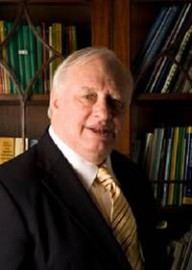
Report on the address by Professor Stephen Haseler at the Federal Union AGM, 10 September 2013
Stephen Haseler is always thought provoking and novel and this was no exception. He linked the relevance of the current crisis in the Syria region to its impact on the European Union and contended that European unity, which he believes will happen, is forged more by external events than by any internal dynamics. All European political leaders are interested only in political short-termism and not in promoting unity from within.
He exemplified his thesis by examining two defining factors: first, the end of the Cold War led directly to the Maastricht Treaty; it enabled German reunification which, in turn, stimulated France to move towards the eurozone and integration to ensure that the greater Germany stayed locked into Europe. Secondly, the global financial crisis caused the eurozone crisis and this required the European Central Bank to bolster the weak Mediterranean countries, thereby turning it into a truly transnational institution.
The end of the Cold War saw the move from a bipolar to what appeared to be a unipolar system with the USA as the only remaining super-power. It is true that the USA spends more on its military than all the other countries in the world put together. The reality, however, is that the world is multi-polar with, perhaps, some three or four super-powers. We are witnessing the retrenchment (it would be wrong to describe it as withdrawal which is too strong a word) of the USA from overseas interests. The USA has only 4 per cent of the world’s population and 24 per cent of the world’s gross domestic product – you cannot run a global empire on that basis. That has been recognised by Obama who is a retrencher and came to the White House that way: prior to his election Obama committed to the withdrawal of troops from Iraq which his contender Hilary Clinton did not do and so lost the Democrat nomination to him.
The most important region for the USA is the Asia-Pacific and it wishes to concentrate on that and pull out from Europe. That is why the USA is pushing the UK to join up with France so that it can effect that withdrawal from Europe. It is, of course, perfectly feasible for the British and the French to devise a wholly European nuclear deterrent. It is probable that the USA wants to do a deal with Iran (which is not run by a group of mad mullahs – those at the top are perfectly sensible and aware of the global political reality and Iran as a country is far better educated and sophisticated than many of its neighbours). Bringing in the Russians to deal with the Middle East problem would allow the USA to retrench. Moreover, the USA with fracking is close to energy self-sufficiency independent from reliance on oil from the Middle East. Clearly, the US public is against intervention in the Middle East (only 16 per cent are in favour on the latest opinion polls). Iran is pivotal to the region. From its own perspective there is always the prospect of an attack by either Israel or Saudi Arabia. The strong Israeli lobby in the USA has now been joined by a strong Saudi Arabian one there. The problem for the USA in not dealing with Syria’s chemical weapons is the message to Iran that they cannot be stopped from developing their own nuclear arms.
How does all this impinge on Europe? For Europe there are three options. The first is to replace the USA as a friend of Israel and Saudi Arabia – Middle East oil remains important to Europe. The second is to adopt the old policy of the 1970s in building up Iran as the regional super-power. The third is to remain neutral but develop close relations with Russia. Whatever the policy, however, it will only be effective if we have greater European unity. Germany would like to withdraw from any involvement in the Middle East and, essentially, is not really interested in an active foreign policy. It is counter-intuitive but those areas of common interest in European unity which ought to be the most easy to agree, such as a common foreign policy, have so far proved to be the most elusive.
Report by Keith Best
